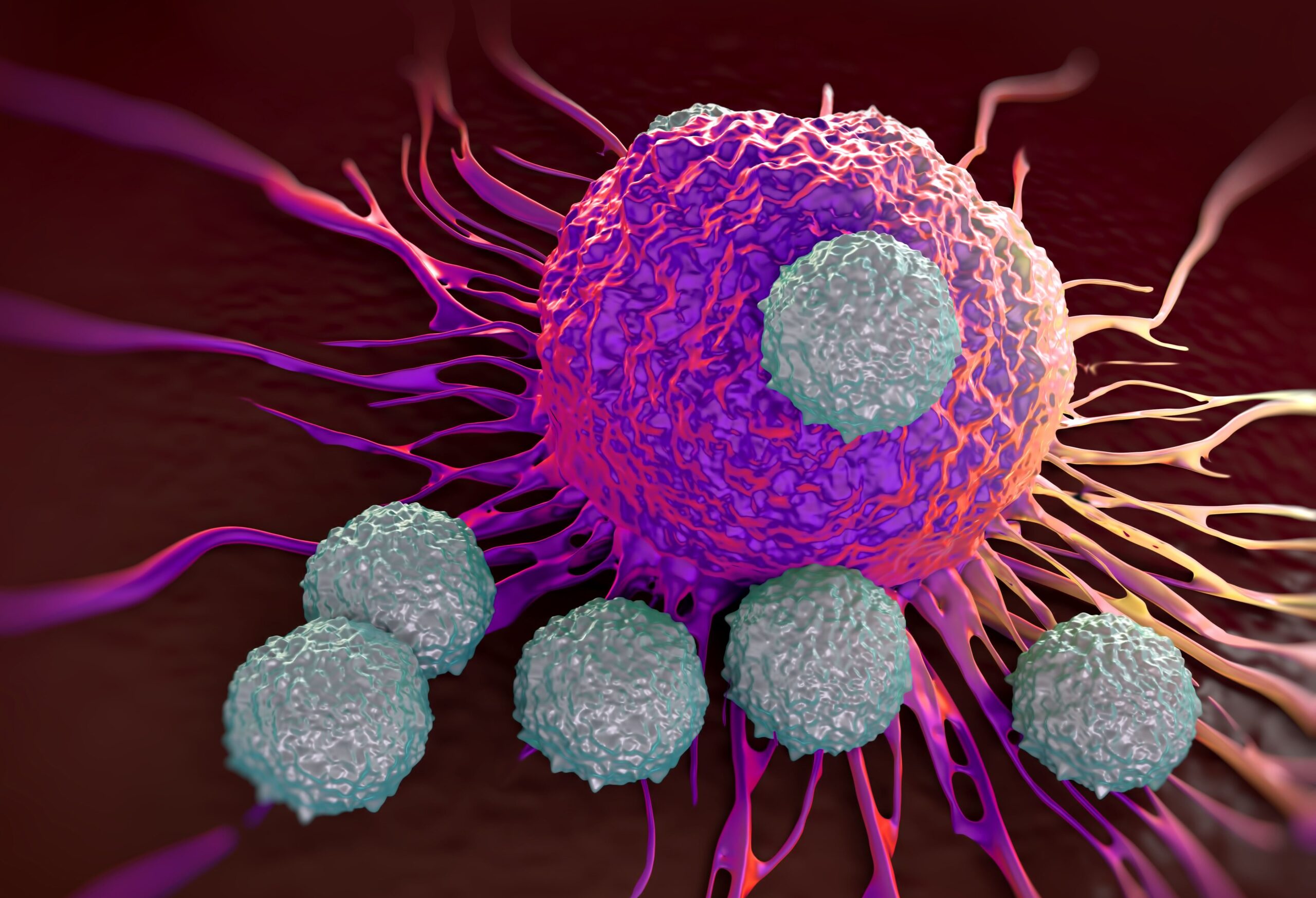Immunotherapy, a revolutionary approach in cancer treatment, holds immense promise in combating various cancer types. This blog explores the application of immunotherapy in specific cancer types, highlighting its efficacy, challenges, and future prospects in transforming cancer care.
1. Advanced Lung Cancer
Immunotherapy emerges as a promising option for advanced lung cancer patients. Studies indicate that immunotherapy, either alone or in combination with traditional treatments like chemotherapy or surgery, can significantly improve outcomes for individuals battling this challenging cancer type.
2. Melanoma
Immunotherapy has shown remarkable success in treating advanced melanoma, a type of skin cancer known for its aggressive nature. By harnessing the power of the immune system to target melanoma cells, immunotherapy offers new hope for patients with this challenging cancer.
3. Bladder Cancer
Advanced bladder cancer poses significant treatment challenges, but immunotherapy has demonstrated effectiveness in this cancer type. By leveraging the immune system to target and destroy bladder cancer cells, immunotherapy offers a novel approach to managing this disease and improving patient outcomes.
4. Kidney Cancer
Immunotherapy has emerged as a game-changer in the treatment of advanced kidney cancer. By enhancing the body’s immune response against kidney cancer cells, immunotherapy has shown promising results in improving survival rates and quality of life for patients with this type of cancer.
5. Challenges and Limitations
Despite the remarkable success of immunotherapy in specific cancer types, challenges and limitations persist. These include treatment object limitations, high selectivity for certain tumor types, translational hurdles from preclinical to clinical settings, lack of confidence in translation, and barriers to implementation due to knowledge gaps among healthcare professionals.
6. Future Directions
Future research endeavours aim to address these challenges and expand the application of immunotherapy across a broader spectrum of cancers. By overcoming limitations and enhancing understanding of immunotherapeutic approaches, researchers strive to unlock the full potential of immunotherapy in revolutionising cancer treatment and improving patient outcomes.
What are the different types of cancer immunotherapy ?
The different types of cancer immunotherapy include:
- Immune Checkpoint Inhibitors: These drugs block immune checkpoints, which are natural mechanisms that regulate immune responses. By blocking these checkpoints, immune cells can respond more effectively to cancer cells.
- T-cell Transfer Therapy: This treatment boosts the natural ability of T cells to fight cancer. Immune cells are extracted from the tumor, selected or modified in the lab to enhance their ability to target cancer cells, grown in large quantities, and then reintroduced into the patient’s body to combat cancer.
- Monoclonal Antibodies: These are lab-created immune system proteins designed to bind to specific targets on cancer cells. Some monoclonal antibodies mark cancer cells for better recognition and destruction by the immune system, making them a type of immunotherapy known as targeted therapy.
- Treatment Vaccines: Cancer treatment vaccines work by enhancing the immune system’s response to cancer cells. Unlike preventive vaccines, these treatment vaccines aim to train the immune system to recognize and destroy existing cancer cells.
- Immune System Modulators: These medications regulate and boost different parts of the immune system to enhance its response against cancer. Some agents target specific aspects of the immune system, while others have a more general effect on immune function
What are the benefits of using immunotherapy to treat cancer ?
The benefits of using immunotherapy to treat cancer are significant and include:
- Effectiveness When Other Treatments Fail: Immunotherapy can be effective when other treatments like radiation or chemotherapy are not successful. Some cancers that do not respond well to traditional treatments may show positive responses to immunotherapy, leading to tumour regression and improved outcomes.
- Enhancing Other Cancer Treatments: Combining immunotherapy with other therapies like chemotherapy can enhance the effectiveness of these treatments. Immunotherapy can help make other cancer treatments more potent and improve overall treatment outcomes for patients.
- Reduced Side Effects: Compared to traditional cancer treatments that affect healthy cells along with cancerous ones, immunotherapy targets the immune system specifically. This targeted approach results in fewer side effects for patients undergoing treatment, leading to a better quality of life during therapy.
- Immunomemory: Immunotherapy can train the immune system to recognize and attack cancer cells if they reappear in the future. This phenomenon, known as immunomemory, helps the immune system remember how to combat cancer cells effectively, potentially reducing the risk of cancer recurrence.
- Long-Term Cancer Control: By boosting the immune system’s ability to target and destroy cancer cells, immunotherapy can provide long-term control over cancer progression. This sustained response can lead to prolonged periods of remission and improved survival rates for patients receiving immunotherapy.
- Innovative Treatment Approach: Immunotherapy represents a cutting-edge approach in cancer treatment, offering personalised and targeted therapies that harness the body’s natural defences against cancer cells. This innovative strategy opens up new possibilities for treating various types of cancers more effectively
Conclusion :
In conclusion, immunotherapy presents a promising avenue for treating various cancer types, including advanced lung, melanoma, bladder, and kidney cancers. Despite challenges like treatment object limitations and translational hurdles, ongoing research strives to overcome these obstacles and expand immunotherapy’s applicability. By leveraging different types of immunotherapy and addressing limitations, researchers aim to revolutionise cancer care and improve patient outcomes. The future of immunotherapy holds great potential in transforming cancer treatment paradigms, offering hope for more effective and targeted therapies against this complex disease.
Citations:
[1] https://www.sciencedirect.com/science/article/pii/S0344033821003848
[2] https://www.sciencedirect.com/science/article/pii/S0753332220300111
[3] https://www.cancerresearch.org/immunotherapy-by-cancer-type
[4] https://www.cell.com/immunity/pdf/S1074-7613%2819%2930530-8.pdf
[5] https://www.cancerresearch.org/immunotherapy-by-treatment-types




